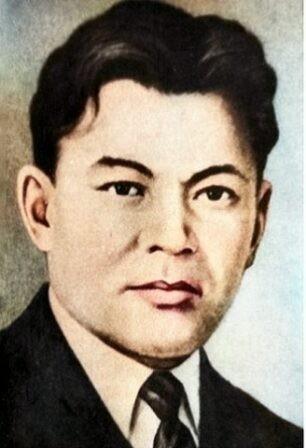
Kazakhstan celebrates 130 years of writer Beimbet Mailin
Aibarshyn Akhmetkali
Astana: Kazakhstan this week marked the 130th anniversary of Beimbet Mailin, a renowned Kazakh poet, writer and playwright who championed the struggles of women and the poor in Kazakh Soviet literature.
Born in 1894 in what is now Beimbet Mailin district of the Kostanai Region, he came from a poor family and lost his parents at a young age. Mailin was brought up by his grandmother, who, despite the hardship, ensured he received an education from the village mullah.

In 1911, Mailin enrolled in a madrasa, but he was expelled just a month before graduation for his satirical poetry mocking the village poet, Arzhikey. Undeterred, Mailin pursued his studies, and in 1914, he graduated from the Uazifa School in Troitsk, Russia. He then enrolled in the prestigious Khalia Madrasa in Ufa. However, financial hardship forced him to return to his native village within six months, where he dedicated the following years, from 1916 to 1922, to teaching.
Before long, in 1923, Mailin took a job as the editor of the Kostanai province’s Yenbekshi Kazakh (Working Kazakh) newspaper. Over the following decade, Mailin took on many roles in a long newspaper career, contributing to publications such as Kazakh Tili (Kazakh Language), Socialist Kazakhstan, and Kazakh Adebieti (Kazakh Literature).
As part of his job, he continued to pitch original pieces to those newspapers that kick-started his career as a writer and poet.
Mailin’s writing career began with the “Thoughts” poem published in the Aykap magazine in 1914. In his later poems, such as “Traits of a Muslim,” “Need,” “Cattle,” “Wealth,” and “Summer Evening”, Mailin wrote his reflections on life and explored social injustice and the struggles of the people.
Mailin did much to expose the inequality and social wrongs of his time. Among his poetic heroes, the most famous is Myrkymbai – a poor man who, for many years, toiled under the bai (feudal lord) but, with the arrival of the Soviet regime, became the master of his own destiny.
Mailin’s most famous work is his first novel, “Monument to Shuga,” initially written in 1915 and later revised and published in 1922. In it, Mailin offers a realistic portrayal of a young Kazakh girl’s struggle against oppressive customs. Throughout his career, Mailin revisited themes of women’s equality in novels like “Communist Raushan” (1923) and “Beren” (1935).
Kazakh writer Mukhtar Auezov once described Mailin as follows: “He is a master of ‘short poems,’ dedicated to the Kazakh woman—her difficult past, her struggle for a better life, and her spiritual and cultural development. However, his true talent shone most brightly in the genres of short stories and novels.”
“The writer sought to address significant issues through his smaller works. His books offer scatterings of portrait sketches, magnificent images, deeply realistic pictures of the contradictions of the transition period, the struggle against nationalist ideology. Mailin writes a chronicle of auls (villages) during the civil war, collectivization, the first five-year period. His central protagonist is the people,” wrote Auezov.
Mailin also made a significant contribution to the development of drama arts in Kazakhstan, experimenting with different genres of drama from 1916 to 1936. His plays, including “Mulla Shanshar,” “Amangeldy” (co-written with Gabit Musrepov), “Front,” “Our Dzhigits,” (Our Man), among others, explored diverse social themes and brought Kazakh theater to new heights. His artistic legacy remains vast, with around 250 poems, over 100 prose works, and 20 plays.
